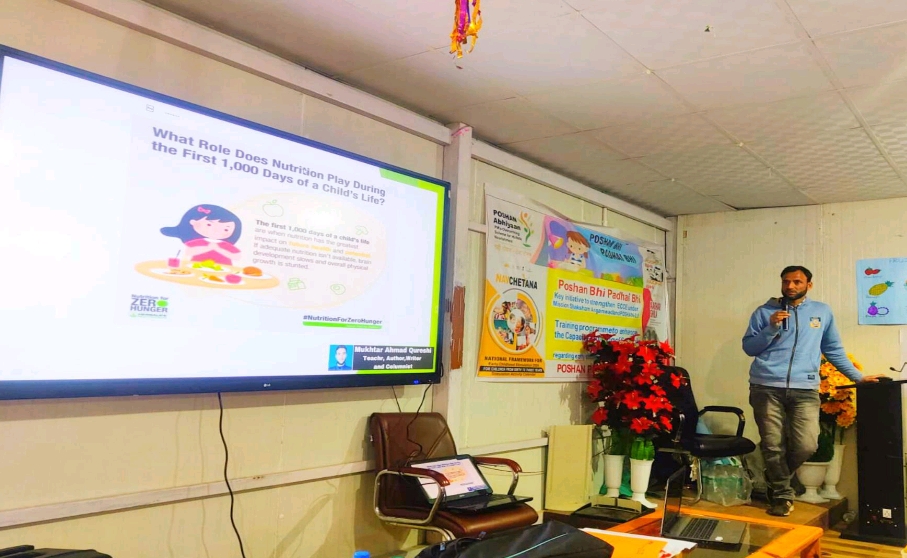The word Rehbar is an Urdu term that translates to guide in English, and the Rehbar-E-Taleem scheme truly lived up to this noble designation. Introduced in 2000 by the then Honourable Education Minister of the erstwhile Jammu and Kashmir state, this initiative marked a turning point in the Jammu and Kashmir’s education sector. At that time, many schools were still non functional in far flung and rural areas owing to the unwillingness of teachers to serve at places inaccessible for the most part. The literacy rate, according to the 2001 Census, was a pitiful 55.52%, male literacy being at 66.60% and female literacy a poor 43.00%. As the need for such a measure called for urgent attention, the Rehbar-E-Taleem scheme sought to deploy educated locals as teachers in foundational and elementary schools. It served to answer the teacher shortage problem and provided culturally appropriate education for children in these areas.
Rehbar-E-Taleem Teachers were soon the backbone of Jammu and Kashmir’s education system, especially in far flung areas. Their commitment and innovative teaching methods contributed to increasing enrollment and reducing dropout rates. They made sure that even those children who had ever dropped out or were never enrolled could be brought into the classrooms and made educational access more effective. It could be seen through the 2011 Census when the literacy rate had increased considerably to 67.16%. Male literacy has increased to 76.75%, and female literacy has also improved to 56.43%. This development was not only statistical but represente a change in the attitude of society towards education, especially in girls. The Rehbar-E-Taleem Teachers thus became trusted members of their community, and it was not confined to academics as they also served as counsellors, encouraged girls in education, and promoted a lifelong learning culture.
Besides teaching, Rehbar-E-Taleem Teachers were actively engaged in non teaching assignments that helped in the overall development of the community. They acted as Booth Level Officers in elections, resource persons in training sessions, carried out surveys, and managed schemes such as Mid Day Meal. Such additional responsibilities underlined their multifaceted personality and commitment to holistic education. Their efforts were not left unrewarded as they received accolades from the administration for their innovative methods and dedication. This learning environment blended the best traditional teaching techniques with modern pedagogical practices. At present, schools in Jammu and Kashmir that were once detested by the people now give great pride to the parents who see them as fit for their children. All these efforts were a result of continuous striving by the Rehbar-E-Taleem Teachers.
The success stories of Rehbar-E-Taleem Teachers are highly inspiring. Many of them have gone on to achieve excellence in various competitive examinations and secured highly prestigious positions, such as JKAS officers, assistant professors, and lecturers. Some others have gained recognition as authors, writers, and columnists who contribute valuable insights into the realms of education and beyond. All of this says that this Rehbar-E-Taleem scheme holds not only potential to solve present issues but can be a nursery for talent and future leadership. These Rehbar-E-Taleem Teachers stick to their missions for the improvement of the educational sector of Jammu and Kashmir Union Territory. Their journey illustrates the transformative powers of dedication and resilience, along with a genuine urge to make an impact in society. Today, the Rehbar-E-Taleem scheme symbolizes development and proves that the most significant hurdles can be overcome with appropriate guidance and support.
(Writer is a Columnist and a Teacher By Profession and Can be Contacted on [email protected])







